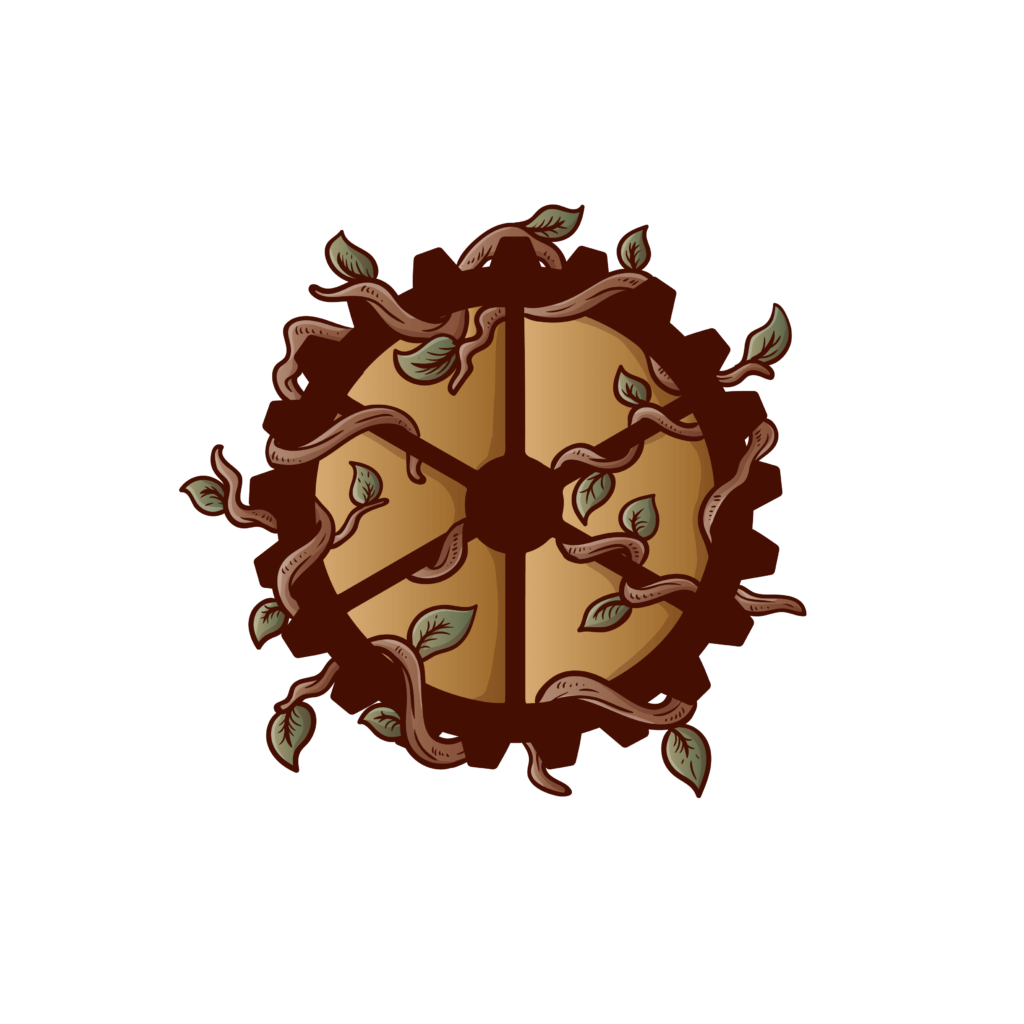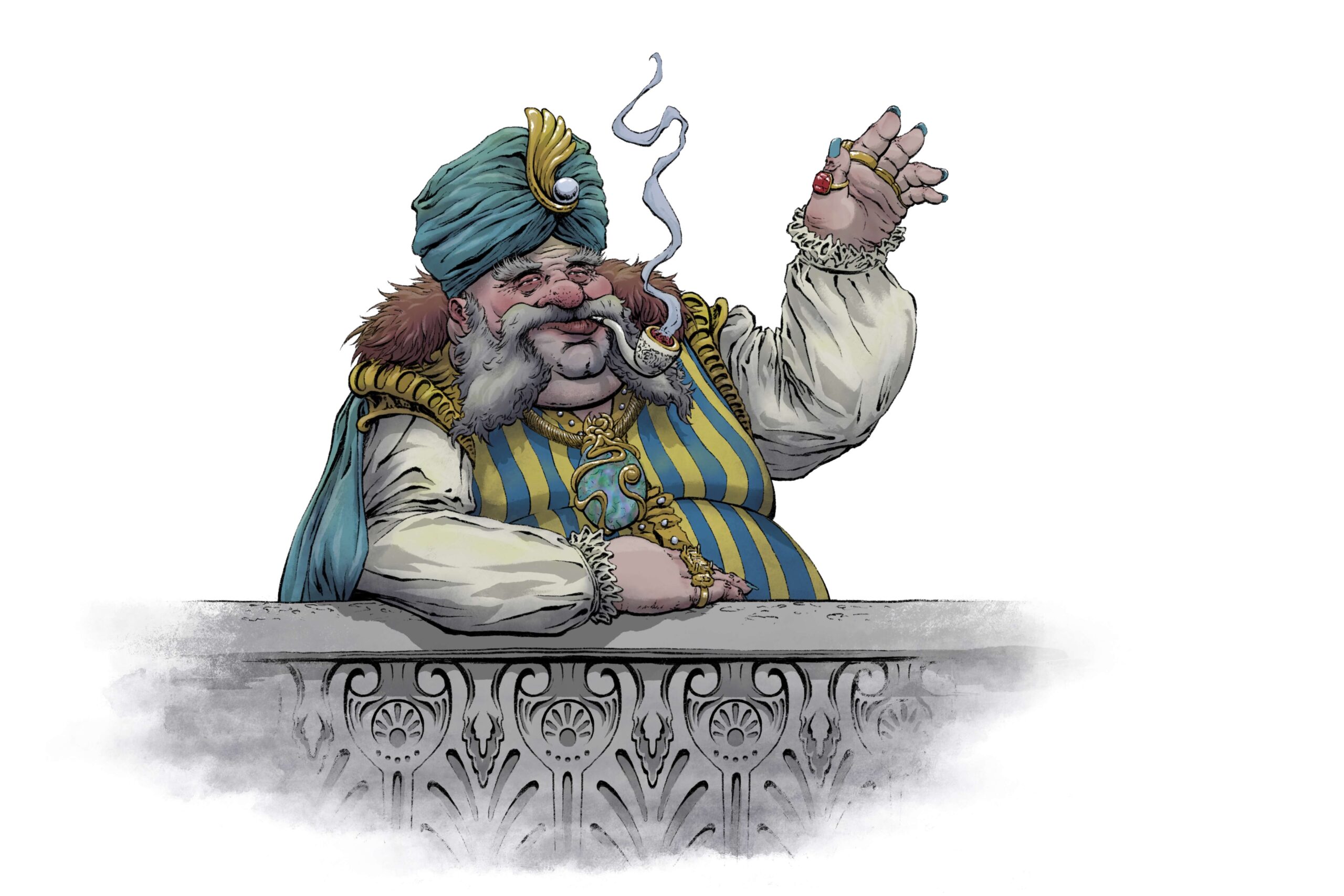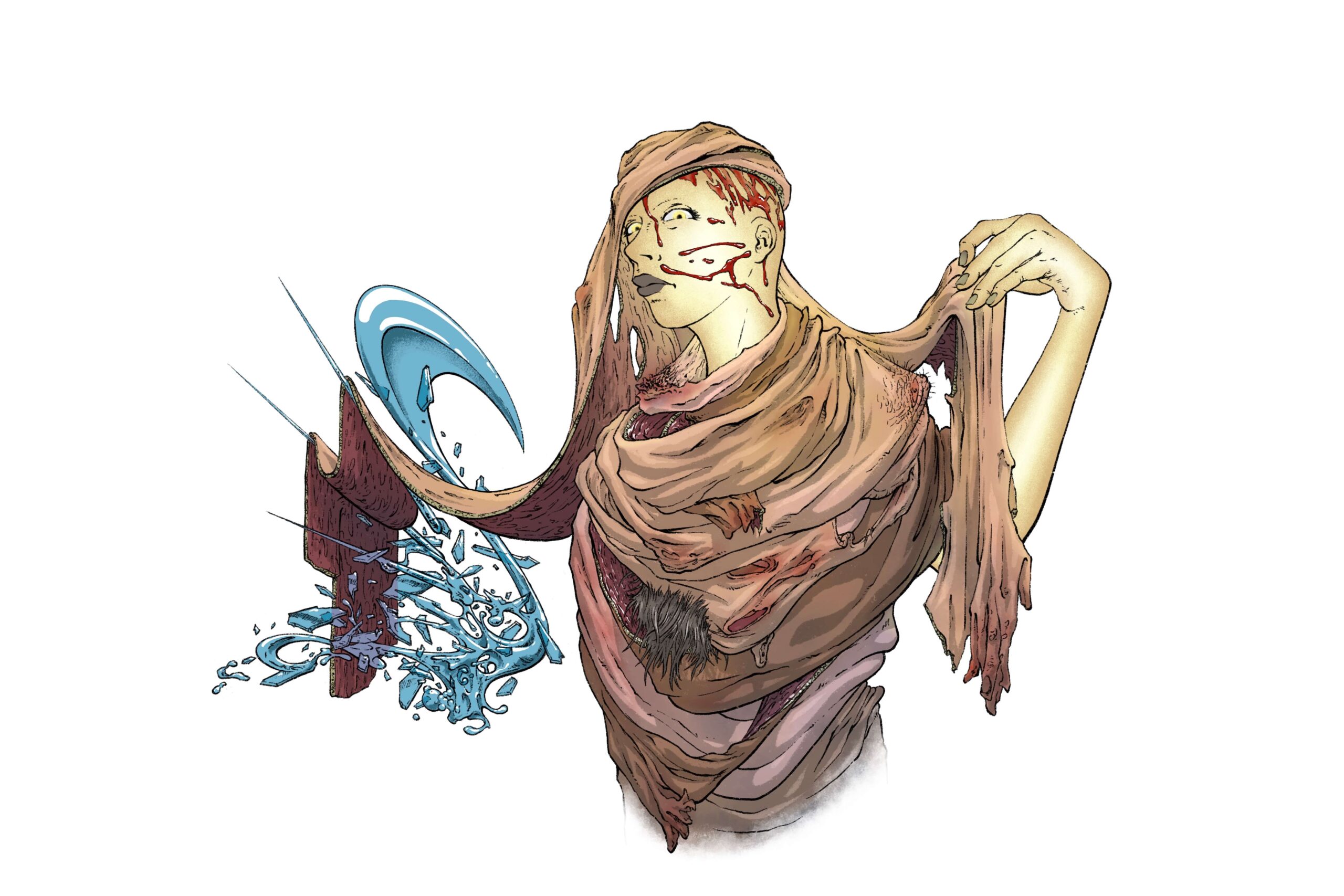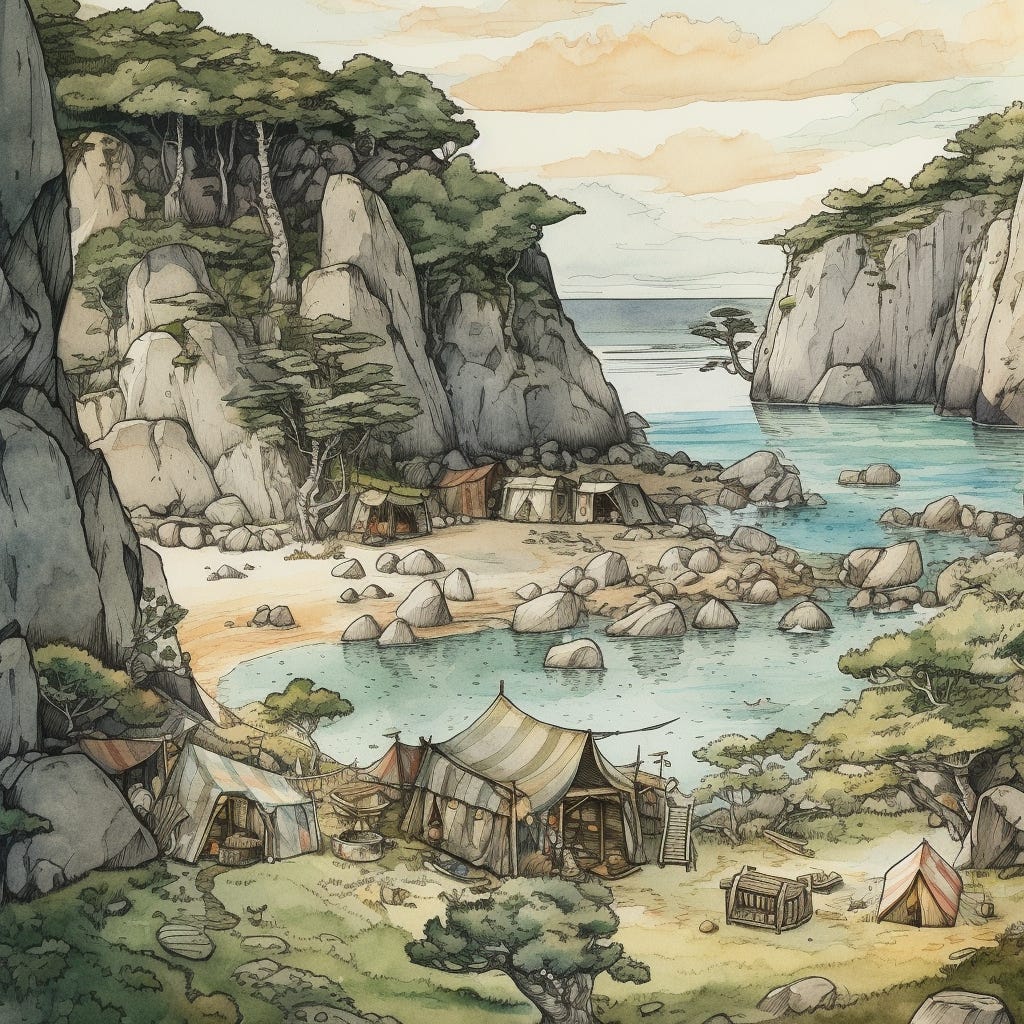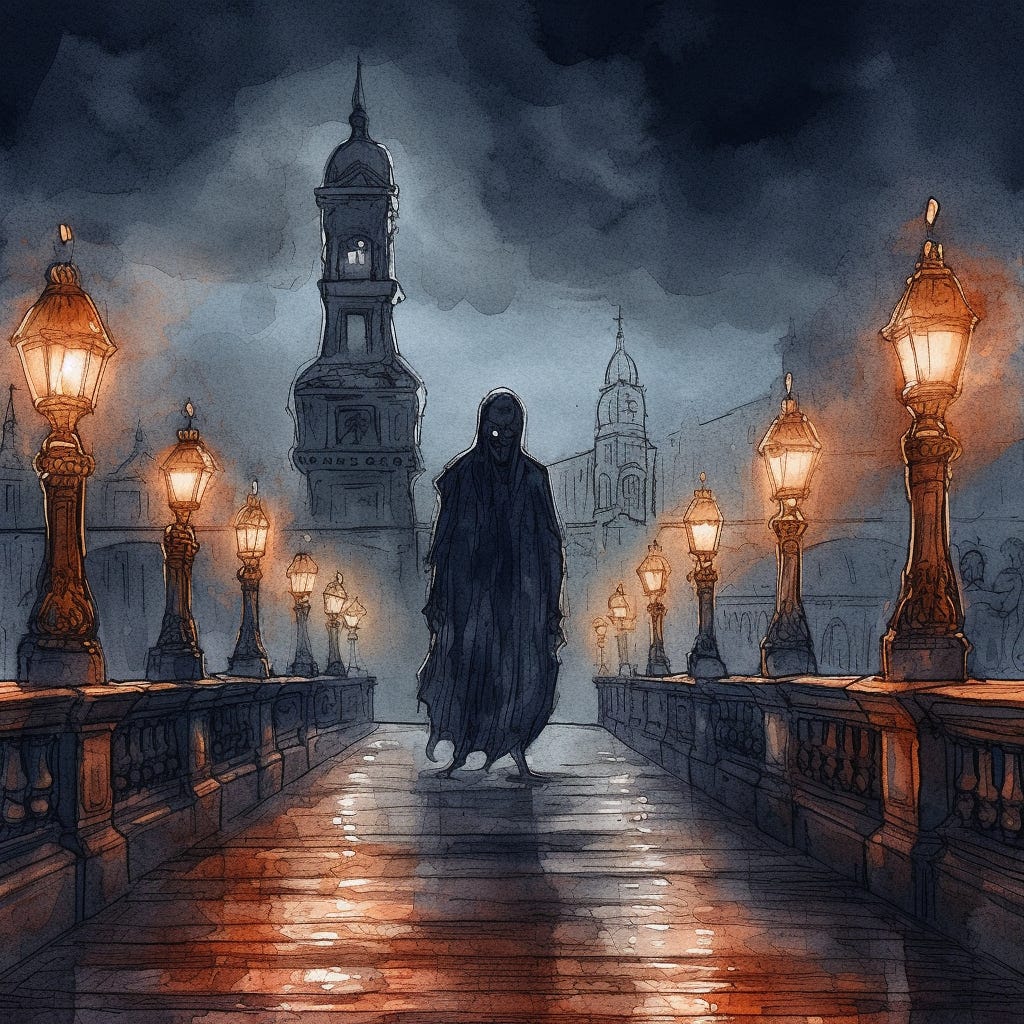Song of the Stonelayer
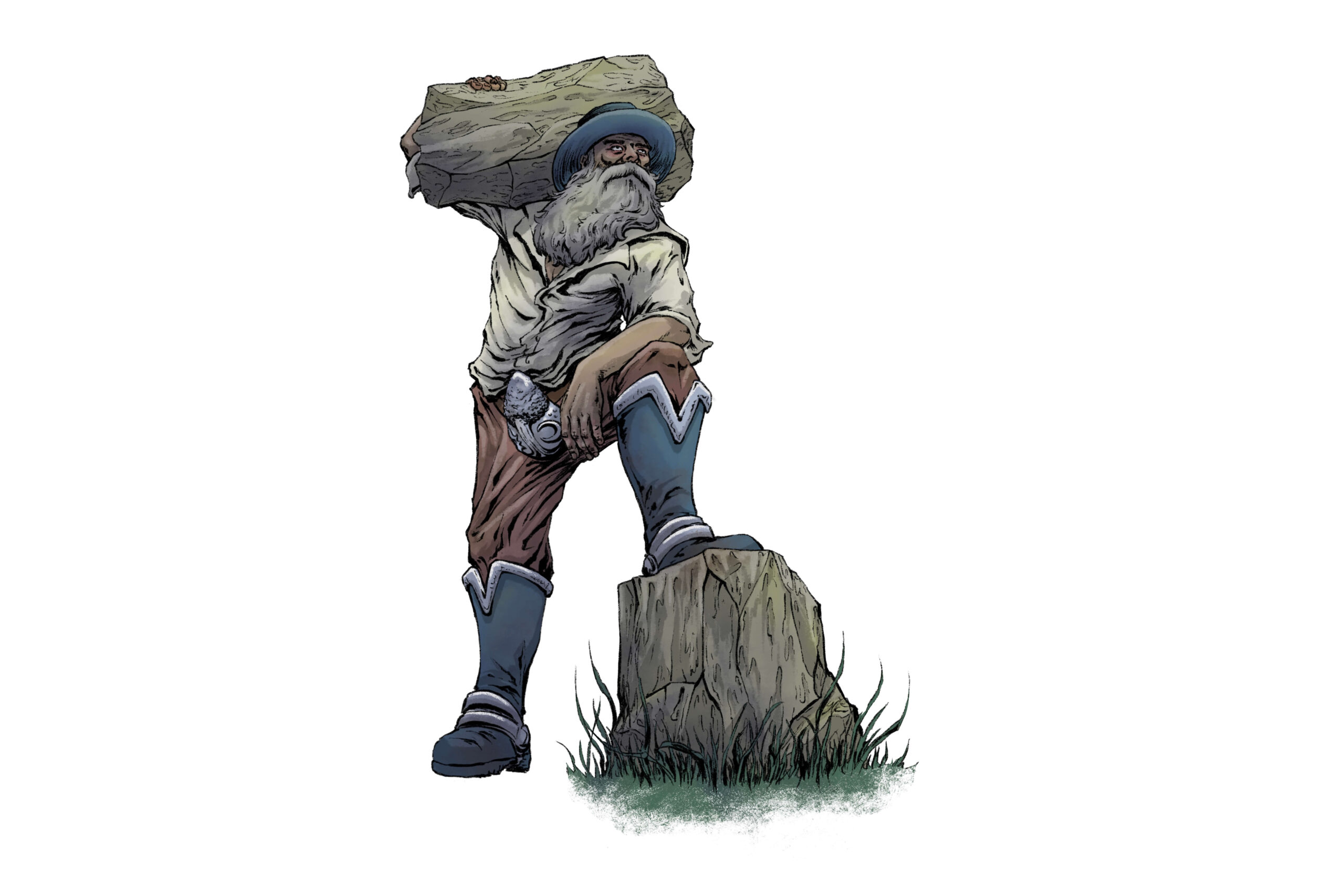
Every stone has a story, and every rock a song — a harmony of rising valleys and a melody of ancient paths. For has the best memory of the rise of Amal? Tell me!
The stones! The stones!
What is the best witness of the conquests of Amal? Tell me!
The stones! The stones!
What is the best lover to the forever-reign of Amal? Tell me!
The stones! The stones!
Aye — the stones! Those lone fragments from creation itself, that have been both mountaintop and keystone over the course of time’s breath.
But before you climb a mountain — before you crown an arch — you must first lay foundation. Who, then, was the First to conquer the stones, the First to seed the stones, the First to lay the stones? Tell me!
The First! The First!
Who was the Only to rend the stones as marker, the Only to draw the stones as boundary, the Only to raise the stones as city? Tell me!
The Only! The Only!
Who was the First and the Only to bind the stones to this crossing? Tell me!
COGIDUBNUS!
Cogidubnus, the Founder of Amalcross! And though we all know of King Cogidubnus’s feats and fortunes, who amongst us would hear none of it again? Tell me!
None! None!
And who amongst us would hear all of it again? Tell me!
All! All!
Then we shall begin at the beginning, from before even the stones.
In the beginning, before the stones, there was only the dismal discord of all and nothing: only chaos!
Booooooo!
But then came Skaardruf the Divider, who sought to order everything from nothing.
Hooraaaa!
This division begat the Realms and began the long war between Order and Chaos. The war waged long and hard — and wages still today, but subtly. The stones stood first, from the cooling molten guts of chaos slain and ordered. What stood first? Tell me!
The stones! The stones!
Aye, the stones.
And stood they for time innumerable, bearing the passage of seasons innumerable, spectators of the lives of species innumerable, until the first webbed grips of the Salavasters scaled them. And thus the stones were scaled, but unmoved. What do the Salavasters say? Tell me!
“Shalahh! Shalahh!”
And after the Salavasters came the razor-ground claws of the Rilk’gar! And thus the stones were broken, but not destroyed. What do the Rilk’gar say? Tell me!
“Garrr! Garrr!”
And after the Rilk’gar, finally came the quick, clever hands of Humanity! And thus the stones were levied, but not measured. What does a Man say? Tell me!
“Build! Build!”
And build they did, with the stones of the Salavasters, and the stones of the Rilk’gar, and the stones now of their own hands. All a song and all singing, to the rhythm of hammer and chisel.
We Humanity did build, we did. And journey we did too, wandering with tribe and clan along reaches so distant they seemed then — seem still — to never end. Tirelessly and tiresome we searched, restless in the travel. In which direction did we travel? Tell me!
East! East!
Aye, east — advancing ever toward the dawn, our destiny rising always with the sun — until the Founding Families laid here upon this very spot, too tired for traversal, too battered from the beating, too forlorn for further flight. But the Divider smiled upon them and cleaned this land of their enemies. And in gratitude, they adhered to that one command divine for both Gods and Men. For what does a Man say? Tell me!
“Build! Build!”
Aye, and they did — with the stones they built, and their fortunes multiplied.
But even stones must fight to rise, and soon there was vicious strife and petty squabbling. Claims bound in ink were stolen with blood and steel. All that which was built seemed close to toppling. And all knew the fortunes of Old Amal would topple with it. Yet even then, no argument could be appeased. All hope seemed gone, all progress lost, all future waning — until the elders sought out the one man who could rend strife with cold reason, short words, and clear edict. Who was he? Tell me!
Cogidubnus!
The man whose seed would sprout an empire. Who was he? Tell me!
Cogidubnus!
Who was the First and the Only, before he was king? Tell me!
COGIDUBNUS!
And Cogidubnus the First did what no others could do, laying markers across the land evenly and fairly. With what did he do so? Tell me!
The stones! The stones!
And Cogidubnus the Only did what no others could do, laying the boundary of Amalcross as it was first known. With what did he do so? Tell me!
The stones! The stones!
Who was rulemaker but never ruler? Tell me!
Cogidubnus!
Who was stonelayer and stonemaker? Tell me!
Cogidubnus!
Who was husband to none but father of all the mothers of the Amal Empire? Tell me!
COGIDUBNUS!
Aye, King Cogidubnus.
And so Cogidubnus ushered in the Amal Era and saw Amalcross rise further. He and his stones paved the road forward and, hand-in-hand with his daughters, led us into our forever-dawn.
But roads do wind and wend, and melodies do shift. For what is it the Rilk’gar say? Tell me!
“Garrr! Garrr!”
What is their growl of conquest and hunger? Tell me!
“Garrr! Garrr!”
Aye — “Garrrrr!”
“GARRRRRRRRRR!”
And thus their pointy ears perked up as they bore down upon Old Amal. Their rough bowled tongues drank the river dry and their serrated teeth tore through crops and children alike. And through it all, Cogidubnus — ever solid as the stones he laid — labored to unify defenses. But that did not stop the Rilk’gar, who drew —
Booooooooooooooo!
— er, yes, but that did not stop the Rilk’gar, who drew in ever closer, ever tighter, the piercing spikes ever bloodier on their backs. What do the Rilk’gar say when their appetite is whetted? Tell me!
“Garrr! Garrr!”
And Cogidubnus — ever as hard as the stones he laid — labored still to unify defenses, but the Rilk’gar spine proved too sharp, and sharper still with each new victory. What do the Rilk’gar say when their next meal’s within reach? Tell me!
“Garrr! Garrr!”
And surveying the work of the Rilk’gar, Cogidubnus — ever as stolid as the stones he laid — was moved to tears.
Even Cogidubnus the First knew the fever of fear. Even Cogidubnus the Only knew the damnation of defeat. The long night before the final battle, King Cogidubnus brought all his subjects together. But instead of tactics and strategy, Cogidubnus demanded tales: Tales to remind Old Amal not of its riches or its land, not of its possessions or its conquests, but of the souls of its people. And through the night, the youngest child to the richest elder shared their own songs, unifying all as one amongst many. And when the sun rose so too did the spirits of the survivors, and their swords and spears, and their stones from slings! For what is it the Rilk’gar say as they taste the meal of their own defeat? Tell me!
“Garrr! Garrr!”
The founding Amalcrossers rallied, their blades splitting the Rilk’gar spine into a hundred broken pieces and their hammers smashing it into a thousand more! For what is it the Rilk’gar say as they’re driven back beyond the Reaches? Tell me!
“GARRR! GARRR!”
And though the Rilk’gar strained and struggled, the founding Amalcrossers stayed and slew them! For what is it the Rilk’gar say as their lives drain into the dirt and feed the next crop? TELL ME!
“GARRRRRRRRRR!”
Aye — “Garrrrr!”
“GARRRRRRRRRR!”
And who was it standing in the glorious new dawn awash with thrilling victory? Tell me!
COGIDUBNUS!
And who was it turning from the western past, looking hard toward the bright and rosy future? Tell me!
COGIDUBNUS!
And upon what did he stand, singing their songs? TELL ME!
THE STONES! THE STONES!
Cogidubnus, whose very will set the stones of Amalcross!
COGIDUBNUS!
Cogidubnus, whose hands laid the stone for the Emperor’s law!
COGIDUBNUS!
Cogidubnus, who convened the first Conclave!
COGIDUBNUS!
King Cogidubnus the First, whose tradition we continue! King Cogidubnus the Only, whose Empire is young and strong! King Cogidubnus the Stonelayer, whose song convenes these Conclaves still!
His words still echoing, Rothus lifts his hands as the crowd roars its approval. He realizes, suddenly, he is very short of breath. He drinks deep of air now filled with the cheers of tens of thousands of spectators. Rothus knows while most of them are native Amalcrossers, some are from the most distant of the Reaches, and a few are even from far beyond it.
He turns to the Emperor as the cheers continue. Their eyes meet only briefly, but it is enough for Rothus to know the performance was sufficient: His retelling of the Stonelayer’s Song was not flawless, but very close to it. He has assuredly secured himself speaking roles for any number of the Hundred Houses’ various parties and weddings — and perhaps secured his position as Imperial Bard for another decade, so long as the rest of this Conclave goes well.
Rothus smiles and bows and savors the crowd’s growing anticipation as the cheers turn to hollers, the applause to stomping. He’ll have to raise his voice from beneath even the foundation of the Grand Hall to project over this racket. But that, at least, is always easy for Rothus ‘ja Darden.
He takes a long, deep breath and declares: “Now shall we begin this fifty-seventh Conclave of Bards!”
